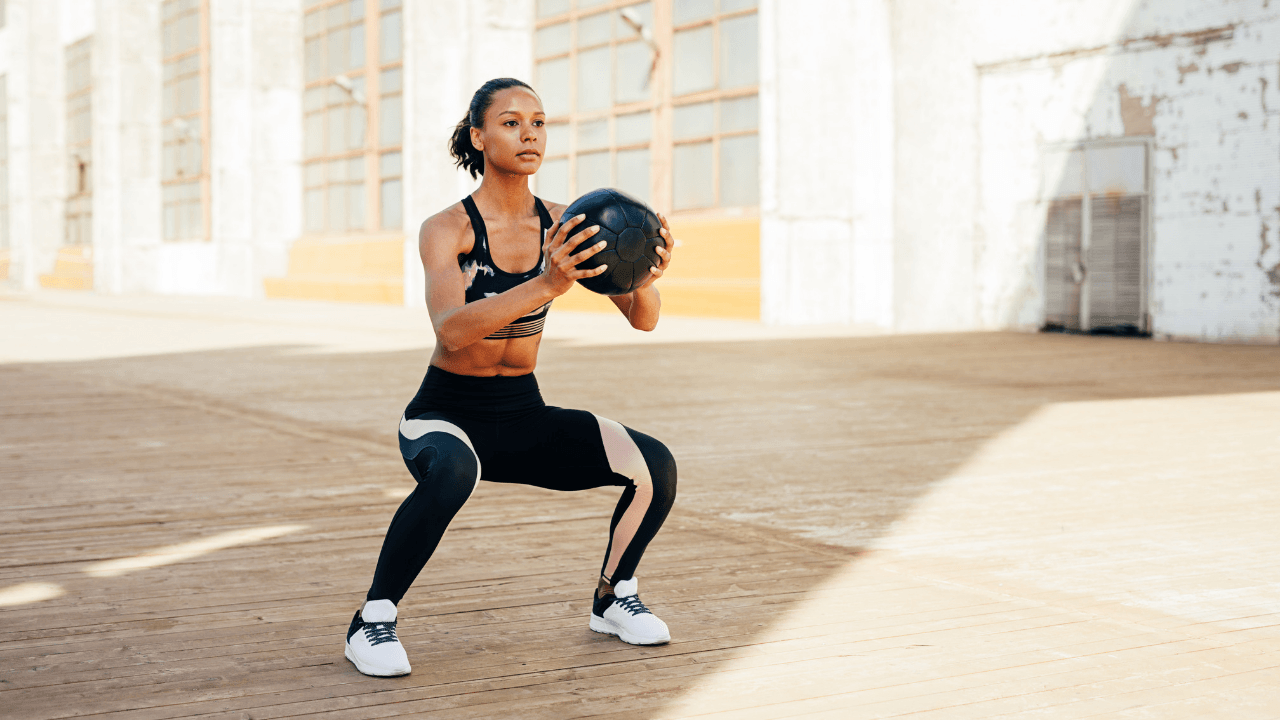
Discover the power of essential vitamins, like a key that unlocks your body's potential. Boost energy, support immune function, promote muscle recovery, and more.
With the right vitamins, you can revitalize your day, strengthen your body's defenses, and speed up recovery after workouts. It's like giving your body the tools it needs to perform at its best.
Whether you're looking to enhance endurance, strengthen bones, or improve cognitive function, essential vitamins play a crucial role in keeping you at the top of your game.
Don't let nutrient deficiencies hold you back. Embrace the power of essential vitamins and unlock a healthier, more energetic you.
Key Takeaways
- Incorporating essential vitamins into your daily diet and exercise routine can boost energy levels.
- Vitamins such as C, D, and E play a crucial role in supporting immune function.
- Nutrient timing is crucial for optimizing muscle recovery, and protein-rich foods or supplements can stimulate muscle protein synthesis.
- B vitamins are essential for converting food into energy, and vitamin D is important for muscle function and may enhance exercise performance.
Boosting Energy Levels
To boost your energy levels, start by incorporating essential vitamins into your daily diet and exercise routine. Nutrition tips play a crucial role in increasing your energy levels. Ensure that your diet includes a balance of macronutrients such as carbohydrates, proteins, and healthy fats. Incorporating foods rich in B vitamins, like whole grains, lean meats, and leafy greens, can also help combat fatigue.

Additionally, consider making lifestyle changes such as getting regular exercise. Engaging in physical activity can help improve your stamina and overall energy levels. Even small changes like taking the stairs instead of the elevator or going for a short walk during your lunch break can make a difference.
Supporting Immune Function
Ensuring that you incorporate essential vitamins into your diet and maintain a consistent exercise routine can actively support your immune function.
The immune system is a complex network of cells, tissues, and organs that work together to defend the body against harmful pathogens.
Vitamin supplements play a crucial role in supporting the immune system, particularly vitamins C, D, and E. Vitamin C is known for its antioxidant properties and its ability to enhance immune cell function.
Vitamin D plays a key role in regulating the immune response, while vitamin E is a powerful antioxidant that helps protect cells from damage.

Incorporate essential vitamins and engage in regular exercise to promote muscle recovery and enhance overall physical performance. Nutrient timing plays a crucial role in optimizing muscle recovery. Consuming essential vitamins at specific times, such as before and after workouts, can support muscle repair and reduce recovery time.
Additionally, focusing on protein synthesis is essential for muscle recovery. Protein-rich foods or supplements consumed post-exercise help to stimulate muscle protein synthesis, aiding in the repair and growth of muscle tissues. Timing your protein intake strategically can maximize its effectiveness in promoting muscle recovery.
Enhancing Endurance
To improve endurance, you should focus on incorporating essential vitamins into your diet while engaging in regular exercise to support muscle recovery and enhance overall physical performance.
Nutrition for athletes plays a crucial role in optimizing endurance. B vitamins, such as B6, B12, and folate, are essential for converting food into energy, which is vital for sustaining endurance during prolonged physical activity.
Additionally, vitamin C supports the immune system, reducing the risk of illness or fatigue that can hinder exercise performance.

Vitamin D is important for muscle function and may contribute to enhanced exercise performance.
Including a variety of nutrient-dense foods such as fruits, vegetables, lean proteins, and whole grains in your diet can help ensure you're getting an adequate intake of these essential vitamins to support endurance and overall exercise performance.
Strengthening Bones
Include plenty of calcium-rich foods in your diet to strengthen your bones and support overall bone health. Adequate calcium intake is crucial for maintaining optimal bone density and preventing conditions like osteoporosis. To maximize calcium absorption, pair calcium-rich foods with sources of vitamin D, such as fortified dairy products, fatty fish, and egg yolks.
Additionally, incorporating leafy greens like kale and spinach, as well as almonds and fortified orange juice, can further contribute to bone strength. Resistance training and weight-bearing exercises are also vital for enhancing bone density and reducing the risk of fractures.
Improving Cognitive Function
Enhance your cognitive function by incorporating brain-boosting foods and engaging in mental exercises to sharpen your focus and memory. Consuming foods rich in omega-3 fatty acids, such as salmon and walnuts, can support brain health and improve cognitive performance.

Additionally, including blueberries and turmeric in your diet provides antioxidants that aid in memory enhancement and concentration improvement.
Engage in activities like puzzles, reading, and learning new skills to keep your brain active and agile.
Adequate sleep, regular exercise, and stress management also play crucial roles in maintaining optimal cognitive function.
Preventing Nutrient Deficiencies
By ensuring that you consume a balanced and varied diet, you can prevent nutrient deficiencies and support overall health and well-being. Nutrient-rich foods such as leafy greens, fruits, lean proteins, and whole grains are essential for obtaining the vitamins and minerals your body needs.
However, in some cases, dietary supplements may be necessary to fill in the gaps. It's important to consult with a healthcare professional before starting any supplements, as they can help identify specific deficiencies and recommend the appropriate supplements.

When choosing supplements, opt for high-quality products from reputable brands to ensure safety and efficacy. Remember that supplements should complement, not replace, a healthy diet.
Conclusion
Now that you've learned about the power of essential vitamins, it's time to take control of your health and well-being.
Don't let your body feel like an empty gas tank - fuel it with the nutrients it needs to thrive. With the right vitamins, you can unlock your body's potential and feel like a well-oiled machine, ready to take on whatever life throws at you.
So go ahead, give your body the boost it deserves!
Frequently Asked Questions
What are essential vitamins?
Essential vitamins are a group of organic compounds that our bodies need to function properly. They play a crucial role in various bodily processes and contribute to our overall health and well-being.
Which are the essential vitamins?
The essential vitamins include vitamin A, vitamin C, vitamin D, vitamin E, vitamin K, and the B-complex vitamins (thiamine, riboflavin, niacin, pantothenic acid, pyridoxine, biotin, folate, and cobalamin).
Why are essential vitamins so important?
Essential vitamins are vital for our bodies as they are involved in numerous biological processes such as energy production, immune function, cell growth and repair, blood clotting, and maintaining healthy skin and hair.
Can't I get all the vitamins I need from food alone?
While consuming a balanced diet rich in fruits, vegetables, whole grains, and lean proteins can provide many essential vitamins, it can sometimes be challenging to meet all our vitamin needs through diet alone. That's where supplements can come in handy.
What are some common signs of vitamin deficiencies?
Signs of vitamin deficiencies vary depending on the specific vitamin, but some common signs can include fatigue, weakness, hair loss, brittle nails, skin problems, difficulty concentrating, frequent infections, and slow wound healing.
Are multivitamins a good option to cover all my vitamin needs?
Multivitamins can be a convenient way to supplement your diet with essential vitamins, especially if you struggle to meet your nutritional needs through food alone. However, it's always recommended to consult with a healthcare professional to determine your specific needs.
Can I take too many vitamins?
While vitamins are essential for our health, taking excessive amounts of certain vitamins can potentially be harmful. It's crucial to follow the recommended daily allowances (RDAs) and consult with a healthcare professional before starting any new vitamin regimen.
Are there any specific vitamins that can boost my immune system?
Yes, several vitamins play a crucial role in supporting a healthy immune system, including vitamin C, vitamin D, vitamin A, vitamin E, and the B vitamins. Ensuring adequate intake of these vitamins, either through food or supplements, can help strengthen your immune system.
Can vitamins help improve my energy levels?
Absolutely! Certain vitamins, such as the B-complex vitamins, are involved in energy production processes within our bodies. Ensuring you have an adequate intake of these vitamins can help optimize your energy levels and combat fatigue.
Can vitamins improve the health of my skin and hair?
Yes, vitamins are essential for maintaining healthy skin and hair. Vitamin A, vitamin E, and vitamin C, in particular, are known for their beneficial effects on skin health and maintaining a youthful appearance.
Can vitamin supplements help with weight loss?
Vitamin supplements alone are not a magic solution for weight loss. However, certain vitamins, such as vitamin D, have been linked to improved weight management, along with a balanced diet and regular exercise.
Are there any vitamins specifically important for women's health?
Yes, women have specific vitamin needs due to factors such as menstruation, pregnancy, and menopause. Some essential vitamins for women's health include iron, calcium, folic acid, and B vitamins.
Do vitamins and supplements have an expiration date?
Yes, vitamins and supplements generally have an expiration date. It's important to check the labels and discard any expired products, as the potency and effectiveness of the vitamins may decrease over time.
Are there any side effects of taking vitamins?
In general, when taken at recommended doses, vitamins are safe and well-tolerated by most individuals. However, some people may experience mild side effects such as upset stomach, nausea, or diarrhea. It's essential to follow the recommended dosage and speak with a healthcare professional if you have any concerns.
Can vitamin supplements interact with medications?
Yes, certain vitamins can interact with medications, including prescription drugs and over-the-counter medications. It's crucial to inform your healthcare provider about any vitamin supplements you are taking to ensure there are no potential interactions.
Can vitamins prevent chronic diseases?
Vitamins alone cannot prevent chronic diseases, but they play a crucial role in maintaining overall health and may help reduce the risk of certain conditions. A healthy lifestyle, including a balanced diet and regular exercise, is essential for optimal disease prevention.
Should I be concerned about getting too much vitamin D from sun exposure?
It is unlikely to get too much vitamin D from sun exposure alone. Our bodies regulate vitamin D production, and excess vitamin D production from sunlight is not common. However, it's essential to practice safe sun exposure to protect your skin from harmful UV rays and reduce the risk of skin cancer.
Are there any vitamins that can help improve mental health and mood?
Yes, certain vitamins, such as vitamin D and B-vitamins, are known to support brain function and mental well-being. Ensuring an adequate intake of these vitamins, along with a healthy lifestyle, may contribute to improved mental health and mood.
Can vitamins help improve bone health?
Yes, vitamins play a significant role in maintaining strong and healthy bones. Vitamin D, calcium, and vitamin K are particularly essential for optimal bone health. Regular weight-bearing exercise is also crucial for bone strength.
Can I take different vitamins together?
Yes, unless specifically advised by a healthcare professional, you can generally take different vitamins together. However, it's always a good idea to read the labels, follow dosage instructions, and be aware of potential interactions between certain vitamins or supplements.
Statistics
- Studies have shown that vitamin C can help reduce the duration and severity of the common cold.
- Vitamin D deficiency affects an estimated 1 billion people worldwide, highlighting the importance of adequate sun exposure or supplementation.
- Vitamin E, renowned for its antioxidant properties, has been linked to reduced risk of heart disease and certain types of cancer.
- Approximately 45% of the global population is at risk of inadequate vitamin A intake, which can lead to night blindness and increased susceptibility to infections.
- Research suggests that vitamin K plays a crucial role in maintaining bone health and reducing the risk of osteoporosis.
- About 80% of pregnant women worldwide have an inadequate intake of folate, an essential vitamin for proper fetal development.
- Regular consumption of foods rich in vitamin B12 can help prevent megaloblastic anemia, which leads to fatigue and weakness.
- Vitamin A deficiency is the leading cause of preventable childhood blindness in many developing countries.
- Vitamin D is not only essential for strong bones but also plays a role in regulating mood and preventing seasonal affective disorder (SAD).
- Studies have shown that vitamin C can help improve skin texture and promote a youthful appearance by boosting collagen production.
- Vitamin E has been recognized for its potential to reduce the risk of Alzheimer's disease and other types of dementia.
- Vitamin B6 plays a vital role in the production of neurotransmitters, such as serotonin and dopamine, which regulate mood and emotions.
- Low levels of vitamin D have been associated with an increased risk of developing various autoimmune diseases, including multiple sclerosis and rheumatoid arthritis.
- Vitamin K deficiency in newborns can lead to a rare but serious bleeding disorder called vitamin K deficiency bleeding (VKDB).
- Studies have shown that vitamin E may help improve cognitive function and reduce the risk of age-related mental decline.
- Vitamin C is a potent antioxidant that can help protect against damage caused by free radicals, reducing the risk of chronic diseases.
- Vitamin D has been linked to a reduced risk of developing type 2 diabetes, as it plays a role in insulin sensitivity and glucose regulation.
- Adding vitamin C-rich foods to your diet can help enhance iron absorption, preventing iron-deficiency anemia.
- Vitamin E has been shown to have a protective effect against age-related macular degeneration, a leading cause of vision loss in older adults.
- Studies suggest that adequate vitamin D levels may help boost testosterone levels, improving fertility in men.
External Links
- Harvard T.H. Chan School of Public Health: Vitamins - A comprehensive resource providing information about various vitamins, their functions, food sources, and recommended intakes.
- National Institutes of Health: Dietary Reference Intakes (DRIs) - Find detailed tables and guidelines about the recommended dietary intakes for different vitamins and minerals.
- Mayo Clinic: Drugs and Supplements Database - A trustworthy resource that provides detailed information about vitamins, minerals, and supplements, including their uses, safety, and potential interactions.
- Medical News Today: Everything you need to know about vitamins - An informative article that highlights the importance of essential vitamins, their sources, benefits, and potential risks of deficiency or excess.
- National Center for Biotechnology Information: Role of Vitamins in Human Health and Disease - An extensive review exploring the impact of vitamins on human health, disease prevention, and treatment strategies.
- National Institutes of Health - Office of Dietary Supplements: Fact Sheets - Access a collection of fact sheets providing detailed information on various vitamins, minerals, and dietary supplements.
- Healthline: The 9 Best Vitamins for Skin Health - Discover the vitamins that play a crucial role in maintaining healthy skin and how they contribute to a glowing complexion.
- EatRight.org: Vitamin K - Learn about the importance of vitamin K in blood clotting, bone health, and its food sources in this informative article by the Academy of Nutrition and Dietetics.
- WebMD: Vitamins and Minerals - Explore WebMD's comprehensive guide on vitamins and minerals, including their benefits, recommended intakes, and potential risks.
- National Institutes of Health - Office of Dietary Supplements: Vitamin D - Access evidence-based information about vitamin D, its role in the body, recommended intakes, and sources.
- Healthline: Do Vitamins Cause Weight Gain? - Find out if taking vitamins can lead to weight gain and how they may potentially assist with weight management.
- JuicePlus.com - Studies published in reputable scientific journals by leading experts consistently indicate that incorporating Juice Plus+ capsules positively influences various health aspects, such as cardiovascular health, immune system function, DNA protection, and reducing inflammation.
- MyFoodData: Top 10 Vitamin B Foods - Discover a diverse list of foods that are rich in various B vitamins, their health benefits, and the recommended daily intakes.
- Medical News Today: How to get more vitamin E in your diet - Learn about vitamin E-rich foods and their potential health benefits, including its role as an antioxidant.
- Harvard Health Publishing: Can vitamins help improve your memory? - Explore the potential role of specific vitamins in memory enhancement and overall brain health.
- Healthline: The 5 Best Vitamins for Energy - Discover the vitamins that play a vital role in boosting energy levels naturally and combating fatigue.
- ScienceDirect: Vitamin C and Immune Function - A scientific study examining the impact of vitamin C on immune function and the prevention of respiratory infections.
- Medical News Today: Can vitamins help prevent a heart attack? - Read about the potential benefits of specific vitamins in reducing the risk of heart disease and improving cardiovascular health.
- Harvard Health Blog: Guide to a Plant-Based Diet - Learn about the essential vitamins and minerals found in plant-based foods, including tips for a balanced and nutritious plant-based diet.
- National Institutes of Health - Office of Dietary Supplements: Iron - Access detailed information on iron, including its crucial role in the body, recommended intakes, and potential sources of deficiency.
- Medical News Today: What you should know about vitamin K deficiency - Learn about the symptoms, causes, and potential risks associated with vitamin K deficiency.
How To
How to Choose the Right Vitamin Supplement for Your Needs
Choosing the right vitamin supplement is essential to ensure you're getting the nutrients your body needs. Start by identifying your specific health goals, such as boosting energy or supporting immune function. Next, look for a reputable brand that undergoes third-party testing for quality and purity. Read the label carefully to check for the presence of essential vitamins and the recommended daily intake. It's also beneficial to opt for supplements that contain natural ingredients and are free from artificial additives. Consider consulting with a healthcare professional to determine any specific deficiencies or individual requirements. Remember, a healthy diet should always be the foundation, and supplements should be used to complement a balanced lifestyle.
How to Incorporate More Vitamin C into Your Diet
Incorporating vitamin C-rich foods into your daily diet is a great way to support a healthy immune system and promote overall well-being. Start by including fruits such as oranges, strawberries, kiwis, and lemons in your breakfast or as a snack. Vegetables like bell peppers, broccoli, and spinach are also excellent sources of vitamin C. Experiment with different recipes like citrus salads, smoothies, or stir-fried veggies to diversify your intake. If you find it challenging to meet the recommended daily intake through diet alone, consider taking a vitamin C supplement. Remember, balance is key, so be sure to incorporate a variety of other essential vitamins through a well-rounded diet.
How to Boost Your Vitamin D Levels Naturally
Increasing your vitamin D levels naturally is essential for maintaining strong bones, supporting immune function, and promoting overall health. One of the best ways to boost vitamin D is through sunlight exposure. Spend some time outdoors, preferably during midday, with bare skin exposed, allowing sunlight to hit your face, arms, and legs. It's important to practice sun safety and to avoid overexposure or sunburn. Additionally, include vitamin D-rich foods in your diet, such as fatty fish (salmon, mackerel), fortified dairy or plant-based milk, and egg yolks. If needed, you can also consider a vitamin D supplement, especially during winter months or if you have limited access to sunlight. Remember, it's always a good idea to consult with a healthcare professional for personalized guidance based on your specific circumstances.
How to Store Vitamins Properly to Maintain Freshness and Potency
To maintain the freshness and potency of your vitamins, it's essential to store them properly. Start by keeping vitamins in their original packaging, as it often provides optimal protection from moisture and light. Store them in a cool, dry place away from direct sunlight. Avoid placing them near heat sources, such as the stove or microwave, as high temperatures can degrade the vitamins. Keep vitamins out of reach of children and pets, as they may mistake them for candy or food. Pay attention to expiration dates and discard any expired or discolored vitamins. If your vitamins come in the form of capsules or tablets, consider using desiccant packets to absorb any excess moisture. By following these storage guidelines, you can ensure that your vitamins maintain their efficacy and freshness.
How to Get More Vitamin A from Your Diet
Getting enough vitamin A is crucial for maintaining healthy vision, supporting immune function, and promoting cell growth. You can increase your vitamin A intake by including foods such as sweet potatoes, carrots, dark leafy greens (spinach, kale), and red bell peppers in your diet. These fruits and vegetables are rich in beta-carotene, which the body converts into vitamin A. Additionally, include sources of animal-based vitamin A, like liver, eggs, and dairy products, if they align with your dietary preferences and restrictions. A balanced and varied diet that includes a diverse range of colorful fruits and vegetables will help ensure you're meeting your vitamin A needs.
How to Ensure Adequate Vitamin E Intake
Adequate vitamin E intake is essential for its antioxidant properties and its role in maintaining skin health, supporting immune function, and protecting against chronic diseases. To ensure you're getting enough vitamin E, include foods such as nuts and seeds (almonds, sunflower seeds), vegetable oils (olive oil, sunflower oil), and spinach in your diet. Incorporating these foods into meals or enjoying them as snacks can help you meet your vitamin E needs. If you have specific dietary restrictions or find it challenging to get enough through food alone, you can consider a vitamin E supplement. However, it's important to consult with a healthcare professional before starting any new supplement regimen.
How to Boost Your B Vitamin Intake
Boosting your B vitamin intake is vital for energy production, brain function, and overall health. To do so, include a variety of B vitamin-rich foods in your diet. Whole grains, legumes, leafy greens, and lean meats are excellent sources of different B vitamins. Incorporating these foods into your meals can help ensure you're getting a broad spectrum of B vitamins. If you follow a restrictive diet, such as vegetarian or vegan, consider fortified foods or vitamin B12 supplements to meet your needs. Remember, B vitamins work together synergistically, so it's generally best to get them through a well-balanced diet rather than relying solely on supplements.
How to Choose Foods Rich in Vitamin K
Choosing foods rich in vitamin K is crucial for supporting healthy blood clotting and maintaining bone health. Include dark leafy greens such as kale, spinach, and Swiss chard in your diet. These greens are not only rich in vitamin K but also offer other essential nutrients. Other sources of vitamin K include broccoli, Brussels sprouts, green peas, and fermented foods like sauerkraut and natto. Utilize recipes that feature these ingredients to incorporate them into your meals. Remember, if you take blood-thinning medications, it's important to consult with your healthcare provider to ensure your vitamin K intake aligns with your specific medication requirements.
How to Get More Vitamin C during Winter Months
Getting enough vitamin C during the winter months is essential for supporting immune function and keeping colds and flu at bay. Include citrus fruits such as oranges, grapefruits, and clementines in your daily diet. Other fruits like kiwis, strawberries, and papayas are also excellent sources of vitamin C. If fresh fruits are less available during winter, you can opt for frozen varieties to ensure a consistent intake. Additionally, include vegetables like red bell peppers, broccoli, and Brussels sprouts in your meals. If your diet falls short in meeting the recommended vitamin C intake, you can consider taking a vitamin C supplement after consulting with a healthcare professional.
How to Ensure Proper Iron Absorption
Ensuring proper iron absorption is crucial for preventing iron deficiency anemia and maintaining overall health. Consume foods rich in iron, such as lean meats, poultry, fish, and legumes, alongside foods that enhance iron absorption. Pairing iron-rich foods with those high in vitamin C, like citrus fruits or bell peppers, can significantly increase iron absorption. Avoid consuming iron-rich foods with items that inhibit iron absorption, such as coffee, tea, and calcium-rich foods, during mealtimes. It's also worth noting that the body absorbs heme iron from animal sources more readily than non-heme iron from plant-based sources. Following these tips can help optimize iron absorption and support your body's iron needs.
How to Incorporate More Vitamin B12 into a Vegetarian or Vegan Diet
Incorporating sufficient vitamin B12 into a vegetarian or vegan diet is crucial, as it is primarily found in animal-based foods. To ensure you're meeting your B12 needs, include fortified plant-based milk, breakfast cereals, and nutritional yeast in your diet. These fortified options are reliable sources of vitamin B12 for individuals following vegetarian or vegan diets. Additionally, you can consider vitamin B12 supplements or a multivitamin specifically designed for vegetarians or vegans. Regularly monitoring your B12 levels through blood tests is also recommended to ensure optimal intake. Consult with a healthcare professional or registered dietitian for personalized guidance based on your dietary preferences.
How to Maximize Vitamin Intake from Salads
Salads provide an excellent opportunity to maximize your vitamin intake and enjoy a refreshing and nutritious meal. Start with a variety of leafy greens as the base, such as spinach, romaine lettuce, or mixed greens. These greens offer essential vitamins like vitamin K, vitamin A, and folate. Add an array of colorful vegetables like bell peppers, tomatoes, cucumbers, and carrots for additional vitamins, minerals, and antioxidants. Incorporate protein-rich ingredients such as grilled chicken, beans, or tofu to enhance satiety and support overall nutrition. Top your salad with a source of healthy fats, such as avocado or nuts, to aid in the absorption of fat-soluble vitamins. Finally, drizzle your salad with a homemade vinaigrette using extra virgin olive oil and vinegar to add flavor and beneficial nutrients. Get creative with various ingredients to make your salads delicious and packed with essential vitamins.
How to Choose the Right Prenatal Vitamins
Choosing the right prenatal vitamins is crucial to support the health of both the mother and the developing baby. Start by looking for prenatal vitamins that contain folate/folic acid, iron, calcium, and vitamin D, as these are particularly important during pregnancy. Ensure that the prenatal vitamins meet the recommended daily intake levels for these nutrients. Consider consulting with a healthcare professional to determine any specific vitamin or mineral requirements specific to your pregnancy. Some prenatal vitamins also contain omega-3 fatty acids, iodine, and other nutrients that may be beneficial, depending on individual needs. Remember to follow the recommended dosage and to combine prenatal vitamins with a healthy diet and regular prenatal care.
How to Obtain Vitamin-rich Meals on a Budget
Eating vitamin-rich meals on a budget is achievable with proper planning and smart choices. Start by including affordable nutrient-dense foods, such as whole grains, legumes, and seasonal fruits and vegetables, in your shopping list. Opt for frozen fruits and vegetables when fresh options are expensive or out of season. Buying in bulk and purchasing generic or store-brand items can also help save money. Plan your meals ahead of time to minimize food waste and make the most of your ingredients. Utilize cost-effective proteins like beans, lentils, and eggs, which are not only rich in vitamins but also high in quality protein. With a little creativity and strategic shopping, it's possible to enjoy vitamin-rich meals while sticking to a budget.
How to Support Your Child's Nutrition with Essential Vitamins
Supporting your child's nutrition with essential vitamins is vital for their growth, development, and overall well-being. Encourage a balanced and varied diet that includes a variety of fruits, vegetables, whole grains, and lean proteins. Offer nutrient-dense snacks, such as sliced fruits, raw vegetables, or yogurt. Choose age-appropriate multivitamin supplements or vitamin-fortified foods after consulting with your child's healthcare provider. Ensure that the supplements are specifically designed for children, as their nutrient needs differ from adults. Educate your child about the importance of a healthy diet and involve them in meal planning and preparation. By creating a supportive environment, you can help your child develop lifelong healthy eating habits.
How to Boost Your Immune System with Essential Vitamins
Boosting your immune system with essential vitamins is a proactive approach to staying healthy. Include foods rich in vitamin C, such as citrus fruits, berries, and leafy greens, in your diet. Incorporate vitamin D-rich foods like fatty fish, fortified dairy or plant-based milk, or consider a vitamin D supplement, especially if you have limited sun exposure. Consume foods high in zinc, including oysters, lean meats, nuts, and legumes, to support immune function. Probiotic-rich foods like yogurt and kefir can also help maintain a healthy gut, which is essential for immune health. Practice a healthy lifestyle that includes regular exercise, sufficient rest, stress management, and good hygiene practices. By adopting these habits, you can give your immune system the support it needs to fight off infections and stay strong.
How to Incorporate More Vitamin E into Your Skincare Routine
Incorporating vitamin E into your skincare routine can provide numerous benefits for your skin. Look for skincare products that contain vitamin E as a key ingredient. These may include facial creams, serums, or oils. Alternatively, you can apply vitamin E oil directly to your skin or mix a few drops into your favorite moisturizer. Choose products that are specifically formulated for your skin type and concerns. Vitamin E can help moisturize, protect against free radicals, and promote a youthful appearance. Remember to patch-test new products before applying them to your entire face and consult with a dermatologist if you have any specific skin concerns.
How to Maintain Vitamin Purity in the Kitchen
Maintaining vitamin purity in the kitchen is crucial for preserving the nutritional value of your foods. Minimize cooking time and heat exposure to retain the highest amount of vitamins. Consider steaming, sautéing, or lightly stir-frying vegetables instead of boiling them excessively. Store fruits and vegetables properly to prevent nutrient loss Due to oxidation. Opt for fresh, whole foods whenever possible, as processed and refined foods often have reduced vitamin content. Wash fruits and vegetables gently before consuming them to remove any surface bacteria while retaining valuable nutrients. Prioritize foods that are in season and locally sourced, as they tend to have higher vitamin content. With these practices, you can help maintain the purity and nutritional value of your meals.
How to Incorporate Essential Vitamins into a Smoothie
Incorporating essential vitamins into a smoothie is a refreshing and convenient way to boost your nutritional intake. Start with a liquid base like almond milk, coconut water, or yogurt. Add a variety of fruits such as berries, bananas, or mangoes for natural sweetness and a dose of vitamins. Include leafy greens like spinach or kale to add valuable nutrients such as vitamin A, vitamin C, and folate. You can also enhance your smoothie with nutrient-rich add-ins such as chia seeds, flaxseeds, or nut butter. Experiment with different combinations and flavors to find your favorite vitamin-packed smoothie. Remember, moderation is key, so balance your smoothie with a well-rounded diet.
How to Support Your Eye Health with Essential Vitamins
Supporting your eye health with essential vitamins is crucial for maintaining good vision. Include foods rich in vitamin A, such as carrots, sweet potatoes, and dark leafy greens, in your diet. These foods are known to promote healthy eyes and optimal vision. Omega-3 fatty acids found in fatty fish like salmon and tuna can also help protect your eyes from age-related macular degeneration. Antioxidant-rich foods like berries, citrus fruits, and bell peppers can provide additional support for eye health. Additionally, consider wearing protective eyewear, taking regular breaks from screen time, and scheduling regular eye exams. By following these practices, you can support your eyes' health and maintain clear vision.
How to Create a Vitamin-rich Salad Dressing
Creating a vitamin-rich salad dressing is a simple way to enhance the nutritional profile of your salads. Start with a base of extra virgin olive oil for its heart-healthy fats. Add vinegar, such as apple cider vinegar or balsamic vinegar, which provides probiotic and antioxidant benefits. To incorporate additional vitamins, mix in freshly squeezed lemon juice, which is rich in vitamin C. Sprinkle in some herbs and spices like basil, oregano, or turmeric, which offer their unique health benefits. Experiment with different combinations to find the perfect balance of flavors and nutrients. Enjoy your homemade salad dressings guilt-free, knowing you're adding an extra dose of vitamins to your meal.
 HealthWellnessFitnessBeautyVideosPrivacy PolicyTerms And Conditions
HealthWellnessFitnessBeautyVideosPrivacy PolicyTerms And Conditions
